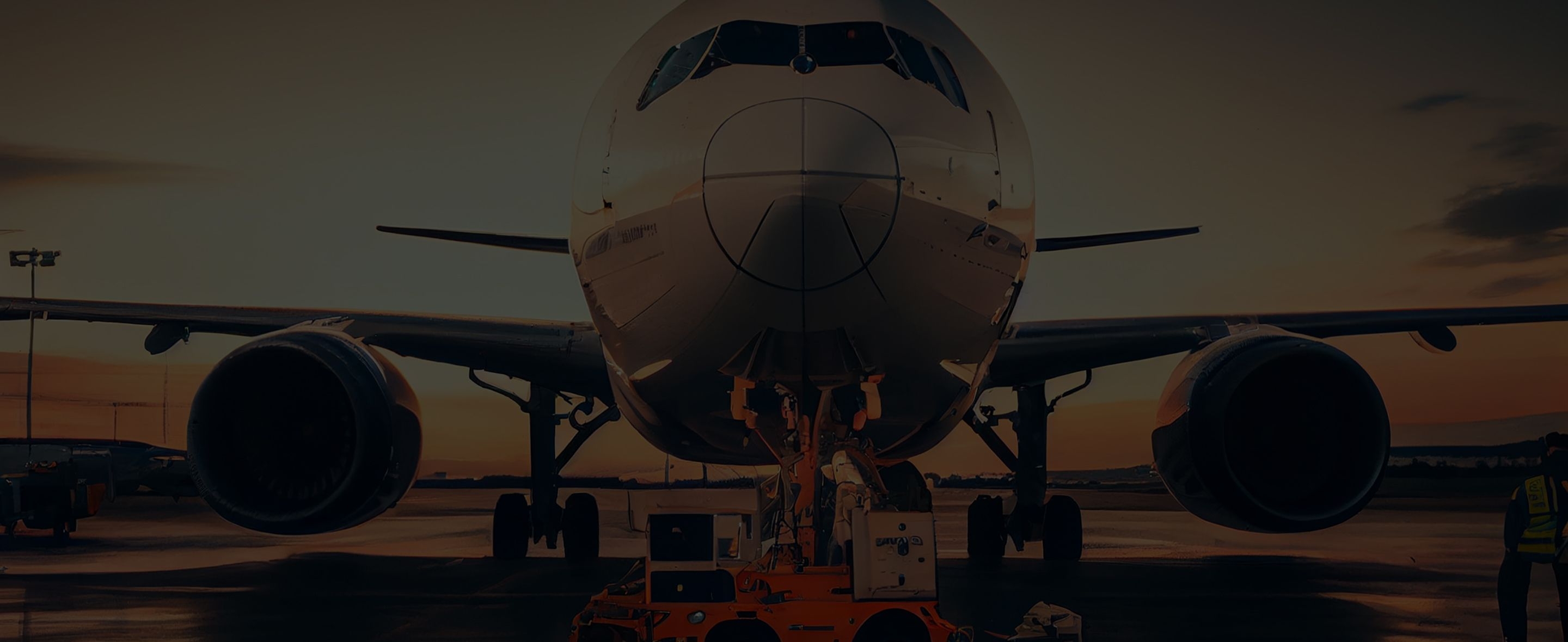
Customs Clearance for Air Freight



![]()
Customs clearance for air freight can be a challenging and drawn-out process. But it doesn't have to be with the proper planning and documentation. In this article, we fill you in on all the details you need on the procedure for air freight customs clearance.
What is Customs Clearance?
The procedure of presenting paperwork to a customs authority to acquire authorization to import or export goods is known as customs clearance. To ensure that all applicable taxes and fees are paid and that all rules governing the import or export of products are followed, customs clearance is required.
Depending on the country of import or export and the kind of products being delivered, the customs clearance process can change. Goods may occasionally be possible to pass customs without any paperwork being needed. However, in most situations, you will need supporting documents like a commercial invoice, airway bill, and other shipping paperwork.
The distinction between customs clearance and customs brokerage must be made. A company that offers customs brokerage services aids in the preparation and submission of paperwork to customs authorities. Customs brokers occasionally offer aid with the clearance of products as well.
What is the Customs Clearance Process?
The customs clearance procedure is the final stage in having your items sent from one nation to another. It entails personally inspecting the shipment, ensuring all the paperwork is in place and assuring that any applicable taxes and duties have been paid. In some circumstances, receiving approval may also require finishing security checks or other administrative processes.
Typically, having your item inspected by a customs officer is the first stage in the customs clearance process. The objective of this inspection, which can be carried out in person or electronically, is to ensure that the delivered products are duly declared and adhere to all relevant laws. To ensure the products are secure and in compliance with regulations, the inspection may also involve a physical inspection of the commodities.
After the inspection, the customs officer will issue a release order for the shipment. This release order indicates that the shipment has been cleared for entry into the destination country. At this point, you will need to pay any taxes or duties owed on the shipment. Once all the required payments have been made, the shipment will be released to you, and you can take possession of your goods.
The customs clearance process can seem daunting, but with proper preparation, it can be relatively straightforward.
When is Customs Clearance Required?
Most of the time, before products can be imported or exported, they must be cleared via customs. The importer, exporter, or customs broker can all complete this process. Making sure that all appropriate duties and taxes are paid on the items sold is the primary goal of customs clearance.
In rare circumstances, clearing customs may not be necessary for the products. For instance, if the items being sent to another nation are gifts or their worth is below a predetermined limit. To ensure you abide by all relevant rules and regulations, it is important to verify with your local customs office.
How Much is Customs Clearance?
The kind and amount of the imported products, as well as any applicable tariffs and taxes, are some variables that will impact the cost of customs clearance. Businesses should often budget $200 to $300 for expert customs-clearing services. To make sure you're getting the best deal possible, it's crucial to request quotations from several different service providers.
Air freight customs clearance can often be a complex process, but with proper preparation, it becomes manageable. One crucial part of this process is ensuring the correct customs procedures are followed for shipments entering or leaving a country.
To help streamline this, if you're shipping to the United States, you may need additional support to ensure compliance with customs regulations. In such cases, iContainers offers a Customs Clearance & Delivery Service that can assist with all aspects of customs clearance, including handling necessary payments and documentation."
Who is Responsible for Customs Clearance?
The clearance of goods through customs is the responsibility of the importer of record. The importer is the one who has the legal obligation to make sure that the products are declared accurately and that all tariffs and taxes are paid. The organization or person placing orders for goods from outside is often the importer.
A freight forwarder or customs broker you are working with could be able to manage the clearing procedure on your behalf. Nevertheless, you will continue to be the importer of record and in charge of making sure that the products are declared truthfully and that all duties and taxes are paid.
How Long Does Customs Clearance Take?
In general, most shipments will pass through customs in a few days. Shipments occasionally get delayed for weeks or even months, though. It's critical to be aware of potential delays during customs clearance if you're importing items into the US.
The time it takes for your package to pass customs depends on several variables. One of the most crucial factors is the kind of items you are importing. Food and pharmaceutical products, for example, are subject to more stringent laws and may require more time to clear customs.
Another crucial element is the port of entry. Due to increased traffic, there may be longer waits for customs clearance at some ports than at others. Consider choosing an alternative port or shipping your goods through a less congested route if you are shipping your goods through a busy port.
The time of year can also affect how quickly customs are cleared. Around significant holidays like Christmas and Thanksgiving, shipments frequently back up. You should prepare for delays if you export your items during these times.
Finally, the origin country can influence how quickly customs clearance occurs. Due to the increased inspection they undergo, goods exported from some nations, such as China and India, may take longer to cross customs.
Air Freight Customs Clearance:
You are responsible for ensuring your cargo complies with all relevant customs laws as an air freight carrier. This includes supplying correct and current documentation, stating the shipment's value, and paying all applicable duties or taxes.
Understanding the fundamentals can assist make the process of clearing customs for air freight easier. The following are the main procedures for clearing customs for air freight:
Pre-shipment Documentation
Making sure all necessary documentation is in place before shipment is the first step. This includes any necessary paperwork, such as packing lists and commercial invoicing.
For customs clearance on air freight, the following documents are needed:
- Proof of identity (passport or other official ID)
- Commercial invoice
- Packing list
- Air waybill
- Insurance documents (if applicable)
- EUR1 Certificate (for preferential rates within the EU)
- ATA Carnet (for temporary import/export of goods)
- Certificate of Origin
- Other relevant export documents (depending on the commodity being shipped)
Classifying the Goods
The next step is to classify the items being shipped properly. This is crucial for customs purposes as it will determine the due duties and taxes.
Filing the Entry
The following action is to submit a customs entry to the appropriate authorities. Typically, the freight forwarder or customs broker will handle this.
Payment of Duties and Taxes
Before the items can be released, the applicable duties and taxes must be paid after the entry.
Release of Goods
The items will be released and available for pickup at the airport once all customs and taxes have been paid.
The customs clearance process for air freight can be streamlined and simplified by understanding these steps. Be sure to speak with an experienced freight forwarder or customs broker if you have any questions.
How to Ensure a Smooth Air Shipment Customs Clearance Process
Compared to other shipping forms, the customs clearance procedure for air shipments can be a little more challenging. This is because there are additional stages and documents needed. But if you abide by these recommendations, you may make sure that your air shipment's customs clearance process goes without a hitch:
Make Sure All Documentation is in Order
Making sure that all of your documentation is in order is the first step to guaranteeing a smooth customs clearance procedure. This contains your airway bill, commercial invoice, and other necessary paperwork. The clearance procedure can be delayed if any of these documents are incomplete or wrong.
Familiarize Yourself with the Customs Regulations
Knowing the customs laws for the nation you are shipping to is another crucial piece of advice. By doing this, you can ensure that your shipment complies with all laws and rules and prevent delays or problems.
Use a Reputable Shipping Company
Another essential factor in assuring a simple customs clearing process is using a reliable shipping company. A reputable shipping business will have experience working with customs and assist you with the procedure.
Be Prepared to Pay Any Taxes or Duties
Make sure to study any potential taxes or duties before shipping your items. By doing this, you can be ready to make a payment when your cargo is delivered.
Keep Track of Your Shipment
Keep track of your package after it has been sent. This will ensure that it clears customs quickly and let you know when it arrives.
Putting these suggestions into practice may ensure that your air shipment clears customs without incident.
- 1. What is Customs Clearance?What is the Customs Clearance Process?When is Customs Clearance Required?How Much is Customs Clearance?Who is Responsible for Customs Clearance?How Long Does Customs Clearance Take?
- 2. Air Freight Customs Clearance:Pre-shipment DocumentationClassifying the GoodsFiling the EntryPayment of Duties and TaxesRelease of Goods
- 3. How to Ensure a Smooth Air Shipment Customs Clearance ProcessMake Sure All Documentation is in OrderFamiliarize Yourself with the Customs RegulationsUse a Reputable Shipping CompanyBe Prepared to Pay Any Taxes or DutiesKeep Track of Your Shipment
